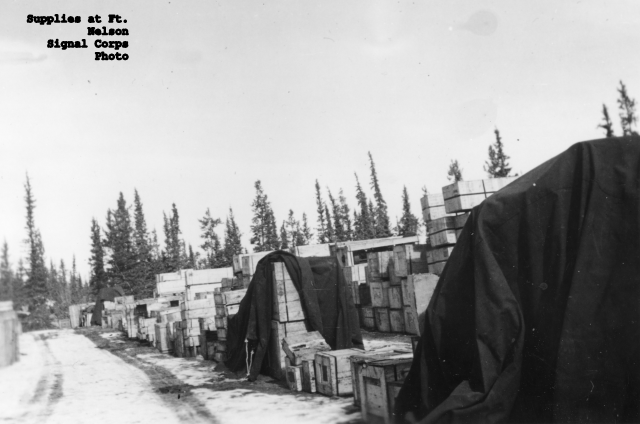
Ft. Nelson, at the end of the incredible journey, Lt. Col Twitchell, assistant in command of the 35th, wrote home, “Now we are safely encamped on top of a hill…overlooking the [Muskwa] river, in a clearing carved out of the woods. I traveled over 3,000 miles in two weeks, with only a few hours’ sleep each night…a mountain of supplies and gasoline, every ton of which represents a struggle to get here. We are housed in pyramidal tents heated by a new type of army stove. We have 80 tons of fresh meat in an ice house…a field bakery…powdered milk and eggs…dehydrated potatoes…We are going to live the life of Riley until our supplies run out some time this summer.”

Link to another story “A Crow, Flying a Straight Path”
Colonel Twitchell didn’t write about the other side of the unfolding saga—the Canadian side. The sudden arrival of two thousand soldiers in March of 1942, overwhelmed tiny, isolated Ft Nelson as it had overwhelmed every other village and settlement they had barged through.
Arthur and Lodema George had settled in Ft. Nelson in the spring of 1938. They operated a small store, restaurant and post office. “…the Americans came in spring of 1942 and they took over,” said Lodema, “…they had the money.”

Arthur elaborated. “Everything went just fine. We had the only place that anyone could go for a meal…they were sick and tired of Army fare. They came over to eat and just about mobbed us. We had lots of fun with them.”
Lodema remembered the effect on her small post office. “I had the Post Office and we only had mail once a month…when the Army came in we had mail 6 to7 times a week, 18-20 bags. They sent a man down to pick it up.”